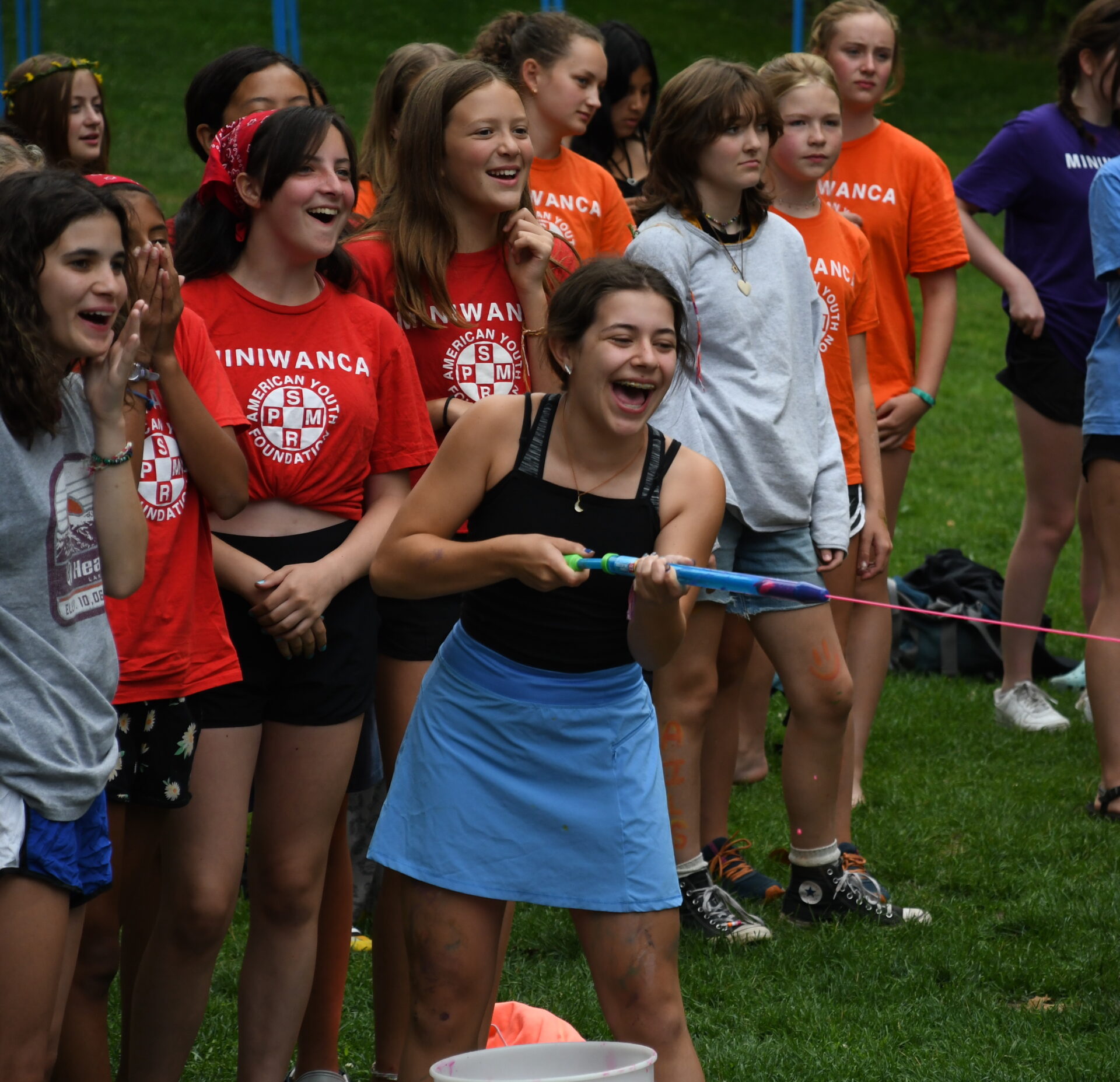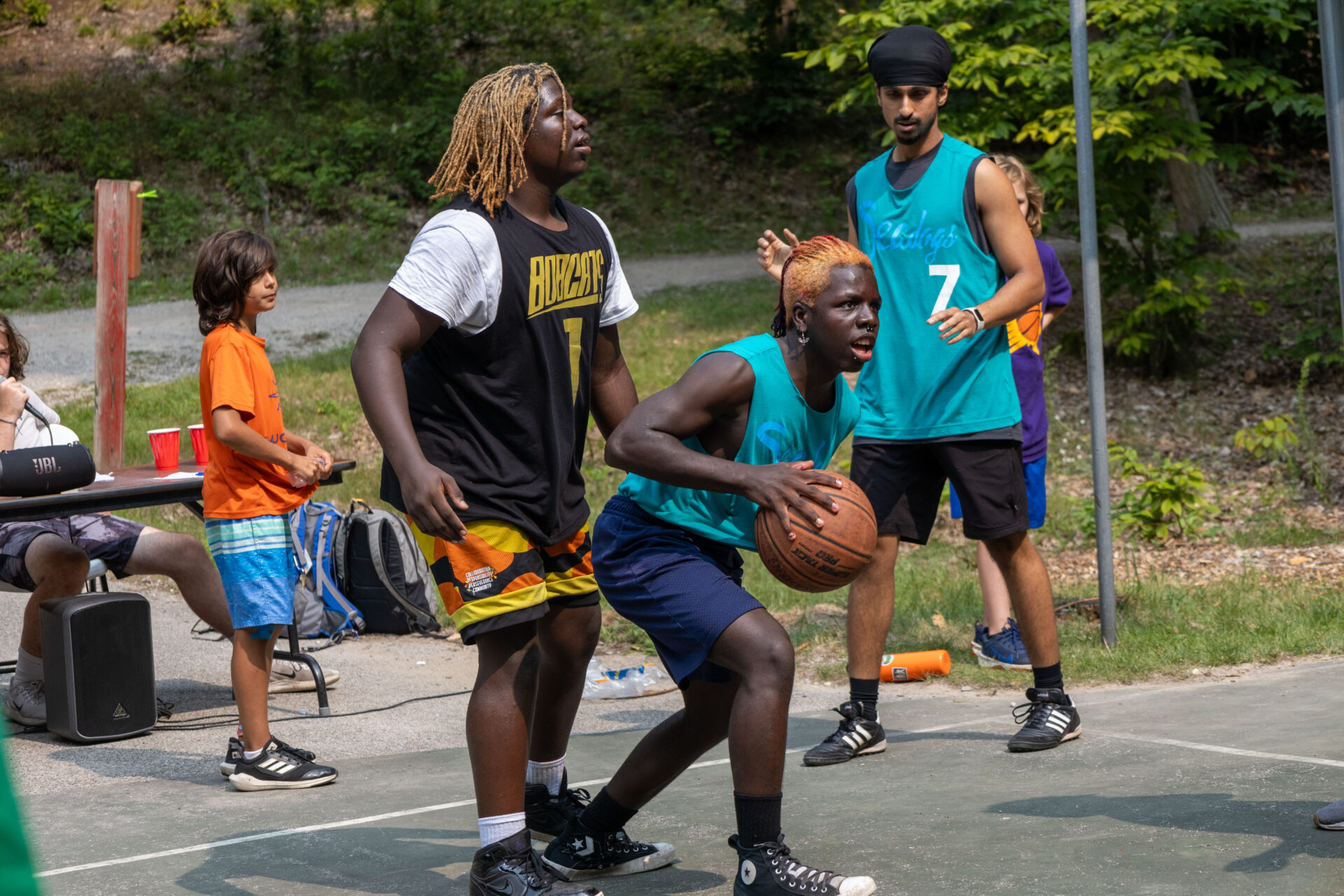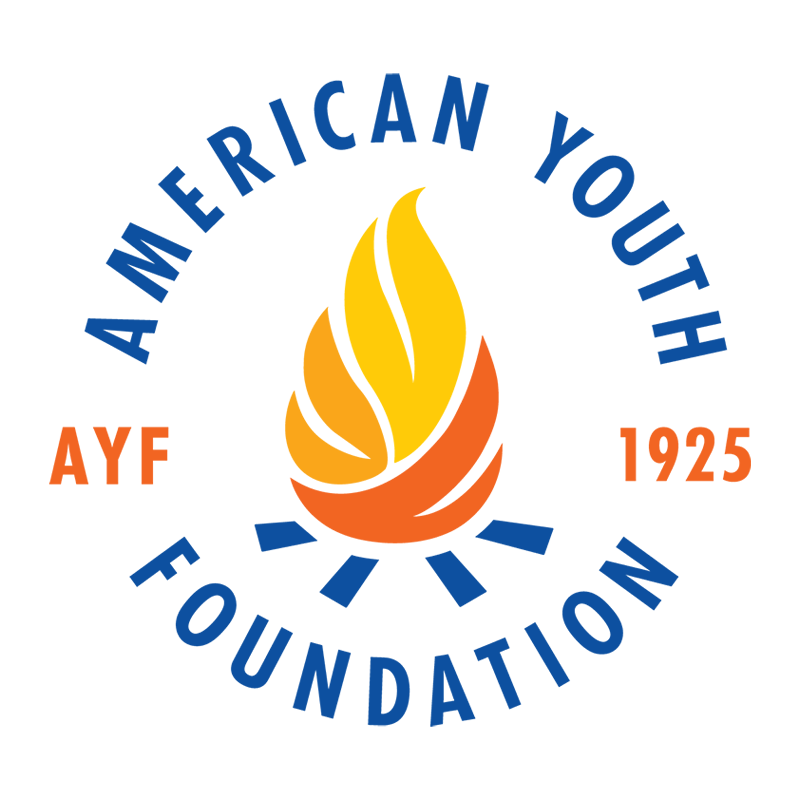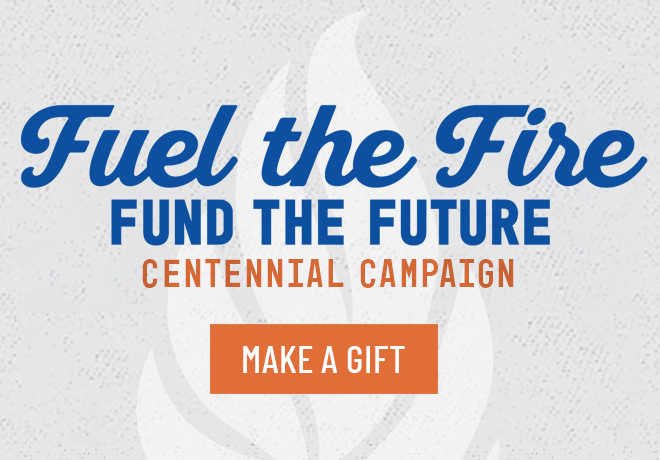On a clear summer evening, a group of Four Trails campers gather around a fire. They’ve just eaten a meal they prepared after a day of kayaking and have finally swapped their damp gear for comfy camp clothes. They’re tired, perhaps a bit sore, and definitely smelly – and their laughter rings out all the same.
The mood shifts as the sun sets. Campers’ voices fade with the twilight as stars blanket the night sky. They reflect on what they’ve accomplished that day, both as individuals and as a community, and where the water may take them tomorrow.
It’s more than just an idyllic summer camp memory in the making. This moment is the result of countless hours developing programs designed to help campers discover and embrace their authentic selves and become more independent, confident leaders at camp and in their home communities.
American Youth Foundation programs go so much deeper than outdoor fun. The dedicated program teams work year-round to create outdoor adventures that place kids in their growth zone – that sweet spot between their comfort zone and their danger zone – to develop their personal best.

On its surface, a flash mob is a spontaneous, wacky group dance that sparks joy and ramps up the volume a few decibels in the Eating Lodge. But, Vice President Liz Marshall explained, there is intentional developmental work at play.
“Teaching people to move in a common rhythm to a song brings people out of their comfort zone, expands their physical exercise, encourages them to be vulnerable in front of others, and helps them to regulate their emotions,” she said. “It takes them through the stages of group development. You don’t know the moves at the start of camp. Staff and fellow campers teach it to you step by step until by the end of camp, everyone knows the dance and is excited to take it home and share it with other people.”
In short, it’s a metaphor in action that happens through the program.

The AYF regularly hears from participants and alumni that their program experiences are among the most important in their lives. But how are these transformational effects measured and improved? That’s what Director of Special Projects Sandra George’s role is all about.
George joined the AYF in early 2023 and began sifting through family survey data to see how AYF programs are meeting the social and emotional needs of youth today, then aligning those outcomes with larger education and public health models.
“The AYF recognizes we have always been doing this work of ‘fun with a purpose’,” said George. “The learning that happens in program communities is social and emotional learning. Fine-tuning our curriculum allows us to tap into greater intentional learning outcomes.”
Social and emotional learning, she explained, is honing what are traditionally classified as soft skills: identifying and self-regulating one’s emotions, social awareness, and relationship skills.
“In the last decade, well-respected education foundations have conducted extensive research about how young people thrive when they develop their emotional, social, and cognitive identities,” she said. “You can see threads of four-fold balanced living in these skills, as well as our new organizational values.”

George spent extensive time revising and updating the AYF summer camp survey and evaluation process to better evaluate metrics like participant growth and satisfaction.
“Summer 2023 set some promising baselines,” she said. “We will continue to repeat the evaluation process in the next few years to share clear data about the short-term and long-term program impacts.”
It seems a lot to ask of a simple interest group, but early results show these activities build identity, community, and resiliency. In 2023:
- 90% of campers found it easy to “know what their strengths are” after their camp experience.
- 94% of campers learned by trying new activities, not just listening.
- 97% of National Leadership Conference participants said new ideas and lessons learned from NLC activities can be applied in their home and school communities.
“The goal is not to become experts in the skills. The goal is to try new things they aren’t necessarily good at and figure out how to work through challenges and discover new interests,” George said. “Learning new skills and building social connections and community with people of different backgrounds ultimately leads to greater self-understanding and transformational growth.”

